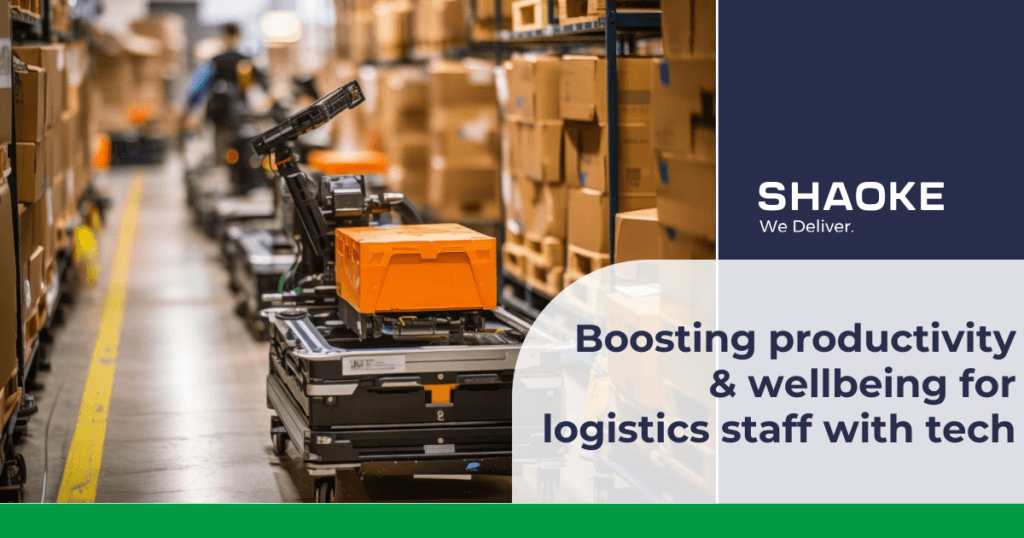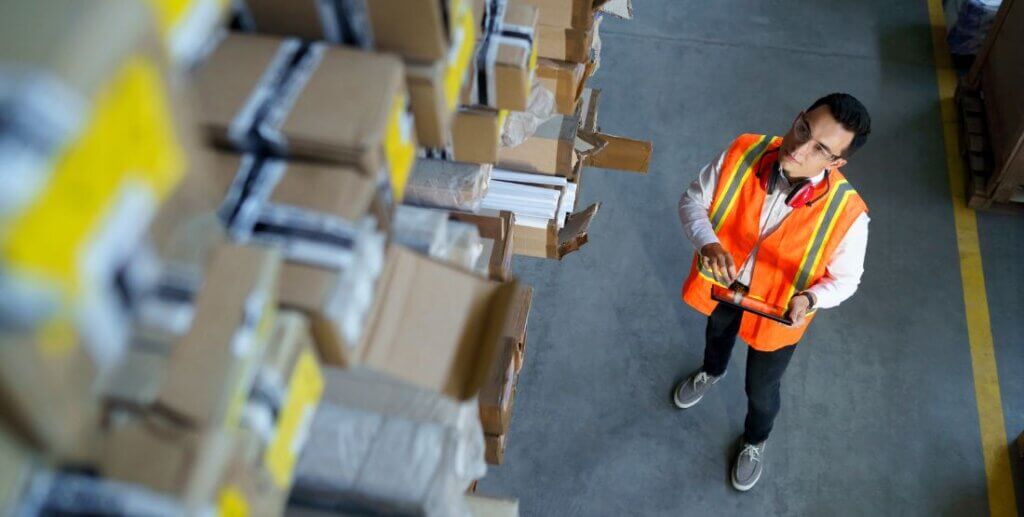
The use of automation and robotics in logistics is rapidly increasing and is set to transform the industry. Research suggests that the impact of robotics on logistics until 2025 will increase productivity by between 𝟮𝟱% and 𝟳𝟬%, and also lead to a reduction in logistics costs by between 𝟮𝟬% and 𝟰𝟬%. Besides that, technology can improve the wellbeing of employees as well. In this blog we’re setting out how technology can enable better outcomes for employees in logistics operations.
Automated processes
Technology allows for the automation of repetitive tasks in fulfillment, such as order processing, inventory management, and shipment tracking. By automating these processes, employees can focus on more strategic and value-added activities, reducing their workload and enhancing productivity.
Inventory management systems
Advanced inventory management systems utilize technology such as barcode scanning, RFID tags, and real-time tracking to streamline inventory operations. These systems provide accurate and up-to-date information on inventory levels, reducing errors, minimizing stockouts, and ensuring efficient order fulfillment.

Route optimization software
For logistics companies involved in transportation and delivery, route optimization software can significantly improve efficiency. These tools utilize algorithms to determine the most efficient routes for drivers, considering factors such as traffic conditions, delivery schedules, and vehicle capacity. By minimizing travel time and fuel consumption, employees can complete their tasks more quickly and with less stress.
Wearable technology
Wearable devices, such as smartwatches and augmented reality (AR) glasses, can improve employee productivity and safety in fulfillment centers. These devices can provide real-time notifications, instructions, and alerts, allowing employees to stay informed and respond promptly to changes in workflow or safety hazards. Additionally, AR glasses can provide hands-free access to information, improving efficiency and reducing the risk of errors.
Collaborative platforms
Collaboration platforms and communication tools enable seamless communication and coordination among employees, whether they’re working in the same facility or remotely. These platforms facilitate sharing of information, collaboration on projects, and problem-solving, fostering a sense of teamwork and camaraderie among employees.

